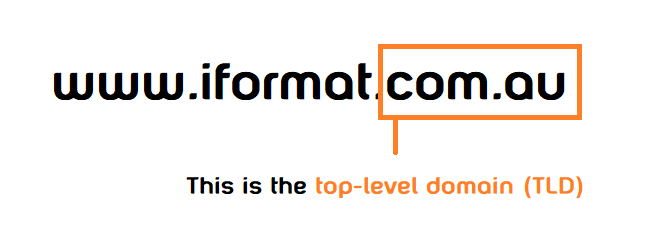When was the last time you visited a site by typing a URL or domain name directly into your browser?
We’re willing to bet it’s been a while. For some of our younger readers, the answer might even be “never!”
While few of us use them for searching any more, domain names aren’t irrelevant. In fact, domain names still have a huge impact on your brand and your SEO!
As such, you’ll want to take a great deal of care when choosing a domain name for your business’ website.
But first: do domain names still matter?
Simple answer, yes!
Back in the day, early search engines placed a massive premium on domain names. Many businesses would rank highly, solely because their domain name contained valuable keywords.
While search engines have since moved away from domain names, they can still impact search engine optimisation Melboune.
For example, changing your domain without careful consideration and execution can result in your ranking plummeting.
The reason is because backlinks (links to your site) are an important ranking factor. More people linking to your site means more visits, and in Google’s eyes, that means your site must be a credible source of information.
Change your domain name without redirecting to your new domain, and all of a sudden you lose many of those inbound clicks.
More importantly, domain names help customers remember your business and establishes your brand. For instance, your domain name can:
- Influence click-through rates
- Result in more attention from searchers
- Help web users remember your business
- Influence how your business is perceived
All of these factors indirectly influence where where your web pages pop up in Google searches. Naturally, you’ll want a domain name that does all of these things!
Building a new site? Here are some tips to help you choose a domain name that increases your web traffic and improves your domain name SEO.
K.I.S.S – keep it short and simple
When choosing a domain name, simplicity is the name of the game.
This matters because your domain name helps you build your brand. You want customers to know that this site is yours, so you can’t have a domain that’s too long or has nothing to do with your business.
- Choose a domain that’s short and easy to pronounce and spell
- Try to ensure it’s unique
- Keep your domain to 15 characters or less
- Make sure it matches your business’ name – your customers need to know it’s you
- In short, make it easy to remember!
From a branding standpoint, a domain that matches your company name will help you build a memorable and strong brand.
People have a much easier time remembering or recognising a name that’s short, to-the-point and easy to memorise. The fewer words, the better.
Choose your top-level domain wisely
There are two parts to any domain name:
- The second level domain (SLD): this is the name of your site
- The top-level domain (TLD): this tells search engines and users what type of site yours is (.com for commercial websites, .edu for school or education websites, .net for network organisations, etc.)
Today, we’ll be focusing on the second one.

Choosing an appropriate TLD has a direct impact on your SEO.
That’s because TLDs also tell search engines what country your business originates from.
For example, our domain name ends with the top level domain “.com.au”, since we’re a Melbourne-based SEO agency.
Since Google prioritises local results, a country-level TLD can improve your ranking.
For example, “.com.fr” domains (or, fr.yoururl.com) are more likely to appear in searches originating in France – this can be a very useful edge if you have international customers!
Choose a domain name that features keywords… but don’t overdo it!
Despite fading in prominence, domain name is still a ranking factor, albeit much less impactful than before.
Since 2012, Google has been cracking down on sites with domain names that fit exact keywords, actively pushing them down results pages.
Obviously, if you’re weighing up between a domain that’s great for branding and one that’s crammed full of keywords, you should go for the first.
However, a keyword or two won’t hurt your SEO. They might even give you a slight boost… as long as it fits with your brand and isn’t spammy (we mean it!)
For example, let’s say I’m an electrical contractor named Scott.
An example of a domain name that strikes the right balance between branding and SEO might be “scotttheelectrician.com.au”.
It’s got my name in it, but it’s also got that all-important keyword, “electrician” – and most importantly – it makes sense!
Need help with your search engine optimisation?
Domain name SEO is only the first step towards building a high-performing, well-optimised website.
That said, a good domain name is still an important decision.
Our goal? To bring more people to your site, and to help you get more business and calls.
Contact iformat today on 1300 88 64 50 or tell us a little bit about your business here to take the first step towards a fulfilling SEO strategy guaranteed to deliver more awareness, leads and sales!